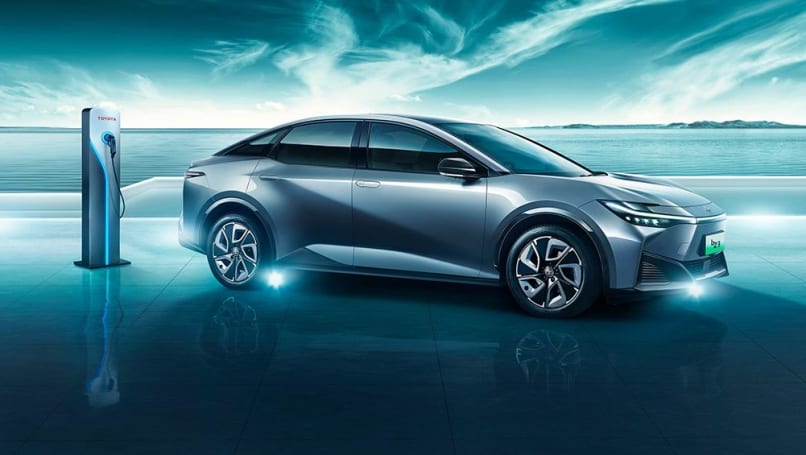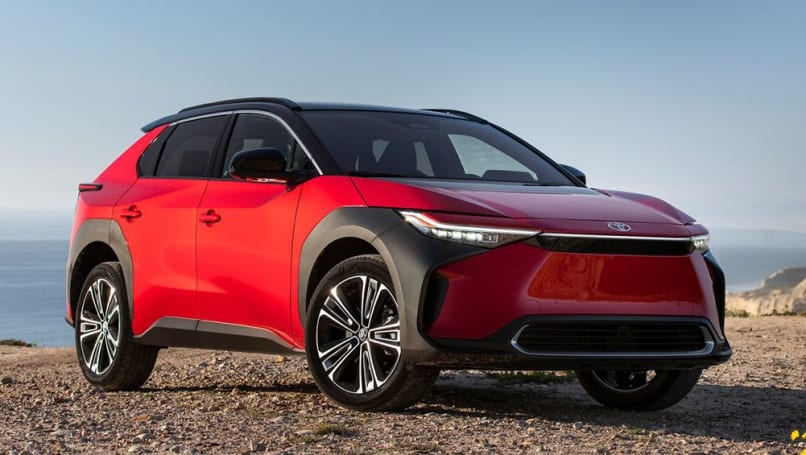
Can Kia topple Mazda in 2025? How the Kia Tasman ute, EV5 electric car and next-gen Mazda CX-5 could shape the sales charts in Australia this year
Kia set a sales record in Australia last year and the company’s boss...
Browse over 9,000 car reviews

Toyota will hit reset on its electric vehicle ambitions, with the Japanese giant reportedly altering, and speeding up, its EV rollout to better take on the growing might of Tesla in Australia and around the world.
Tesla's success is not to be sneezed at. The US-based EV maker only has a handful of electric models in market around the world, but that hasn't held it back.
In September, for example, the Tesla Model Y was Australia's best-selling SUV (electric or otherwise) and the country's third best-selling vehicle overall, beating perennial favourite the Toyota RAV4 Hybrid, as well as every other established brands' offerings.
Globally, it's a similar story. A recent Tesla investor presentation predicted the brand would sell around 800,000 examples of the Tesla Model Y by the end of the year – a feat that would make the electric SUV the world's fifth best-selling car.
Those are big numbers, and they haven't gone unnoticed at Toyota, with Reuters reporting that the brand – which has been criticised for not moving fast enough on electric vehicles – will now redouble its efforts, scrapping its existing roll-out plans in an effort to do more, and more quickly.
According to US news site Reuters, the drastic move was fuelled by the company's surprise at how quickly the world was moving to electric vehicles, with actual sales outstripping the brand's projections.
"What's driving (the) effort is the EV's faster-than-anticipated takeoff and rapid-fire adoptions of cutting-edge innovations by Tesla and others," a source told Reuters.
And with only one EV launched – and even that model marred by a complicated sales stop after issues were discovered – Toyota has reportedly identified the need to speed up its rollout.
As a result, the brand has temporarily suspended work on at least some of its much-hyped 30 EVs by 2030 plan. Company boss Akio Toyoda said in December last year that most of the new models would launch in "the next few years" - and would attract a monster investment of almost $100 billion.

In previewing a total of 16 new vehicles – including a model that appeared to share plenty with the Toyota FJ Cruiser, as well as a pick-up that looks like the new Toyota Tundra or a next-generatiom Toyota Tacoma – the brand used that presentation to say that it would be investing heavily in battery technology and energy efficiency to make its electric dreams come true, which includes BEV sales of 3.5 million a year by 2030.
But the brand has hit pause on that promise, and instead assembled a four-person team tasked with identifying a new strategy for the brand to follow by early next year.
Part of the project will focus on the models required, but will also identify a more efficient manufacturing project that will help lower the cost of making (and the eventual sale price) of new electric vehicles.

It could even involve scrapping Toyota's e-TNGA platform – which underpins the bZ4X and just-revealed bZ3, and was set to underpin almost all of Toyota's electric vehicles – in favour of an entirely new platform that would aid in efficiency.
The brand has already partnered with Chinese EV giant BYD (Beyond Your Dreams) on the Chinese bZ3, which will be wearing a Toyota badge but will be powered by BYD's Blade Battery technology.
To be launched in China by the end of the year – but with a potential global launch to follow – the bZ3 will be the second vehicle in Toyota's all-EV bZ family, following the launch, and then launch suspension, of the bZ4X.
Comments